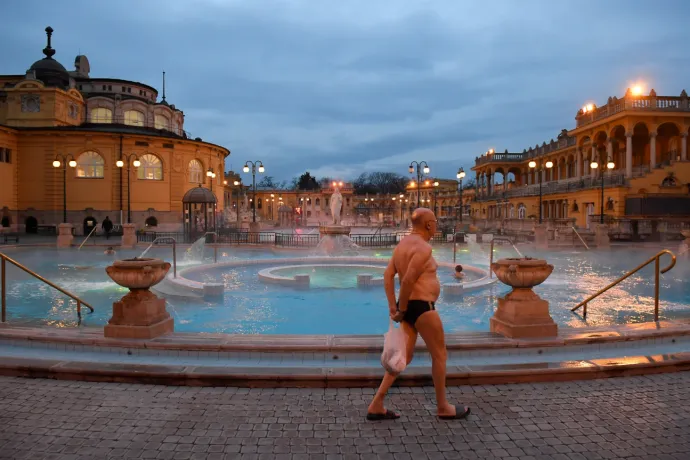A surprising plan: the state may take over the best Hungarian spas

Telex has learned that the state would take over spas on the grounds that the already struggling municipalities do not have enough money to pay their energy bills. Then, if all goes well, they could even be put up for concession.
The state has set its eyes on spas. The capital has Gellért, Lukács, Széchenyi, and Rudas, and the rural ones are Hévíz, Gyula, Harkány, Zalakaros, Hajdúszoboszló – we are indeed a great spa superpower. We have public baths and thermal baths – some are internationally renowned, and others are considered world-famous only in Hungary. But the fact is that bathing culture is a key element of Hungarian tourism, especially in the low seasons, and where there is a spa, many things are built around it (accommodation, restaurants, and other leisure activities).
Spas in the provinces are suffering quite a bit. Many spas built with central subsidies back in the day are difficult to maintain in any case, and in recent years they have been hit by Covid too. In fact, even 2022 was still a season partly hit by the epidemic, but the Budapest spas, which are of major tourist interest, have become more attractive, partly because of the weaker forint as well. Someone told me, for example, that even the staff from the central office had to stand in to help out at Széchenyi spa, because of the year-end crowds.
A strange idea
Telex has been informed that the Growth and Competitiveness Cabinet, headed by Minister of Economic Development Márton Nagy, is now considering how the state might take over the largely municipally-owned spas. A working document suggests that in the wake of Covid and the energy crisis, public baths and thermal baths faced such difficult financing and operational problems that
"it would be worth rethinking the issue of the ownership of spas".

The euphemistic term suggests that the state could now take over the better spas. There are several ways of making this happen: expropriation, purchase, and concession. According to our sources, the government is going for the economically viable, touristically significant spas, of course, which are worth acquiring, but those that are not can remain with the municipality. We have contacted the Ministry of Economic Development but have not yet received a reply to our queries.
Nationalisation is not so easy
Of course, the authors of the plan themselves know that there would be political and economic risks of a major state intervention. We understand that several laws would have to be amended, municipalities could claim damages, and the press would be critical of the expropriation, but the authors of the paper say the work is worth it.
We ourselves have heard that it is far from certain that the plan has sufficient enforcement capacity. Indeed, the ownership of the spas is quite varied, with a mix of municipal, municipal company, church and private owners.
As one of our legal sources told us, traditional nationalisation is sometimes easier, for example when an asset (a school) is linked to a public service (education). When the state takes over public education as a public service, it can also take over the school. But spas are commercial assets, and such assets are more difficult to expropriate from a private company or even a municipal company, and can only be expropriated by compensation.
In addition, a protracted dispute would undermine the spa's position in tourism, create uncertainty and make it more difficult to retain experienced staff in a sector that is already short of workers.
That is why, as far as we know, the state is targeting municipally-owned spas first. Those that are in private or church ownership will be left alone. So, for example, the Hunguest Hotel, controlled by Lőrinc Mészáros can rest easy, as the nationalisation of its facility in Egerszalók is not on the agenda. In fact, some of our sources have explicitly said that entrepreneurs favoured by the government, who are active in the hotel industry, felt that they had a problem if a local government of a different political hue owned the spa next to the hotel.
We understand that some 90 spas have been directly targeted in the programme. There are more than 400 spas in the country, but only 35 of them are of any significant touristic importance. It seems a particularly extreme idea that the state is also considering expropriating certain spas from municipalities and then concessioning them to private operators.
When preparing our article, naturally, we requested a comment from the Ministry of Economic Development. We have updated the article with their answer below:
On Tuesday evening, the Ministry of Economic Development informed Telex that "the paper mentioned in the article is no longer relevant because in the meantime spas have been removed from the operational programme at the request of Brussels"
For more quick, accurate and impartial news from and about Hungary, subscribe to the Telex English newsletter!